#reinhold schunzel
Text
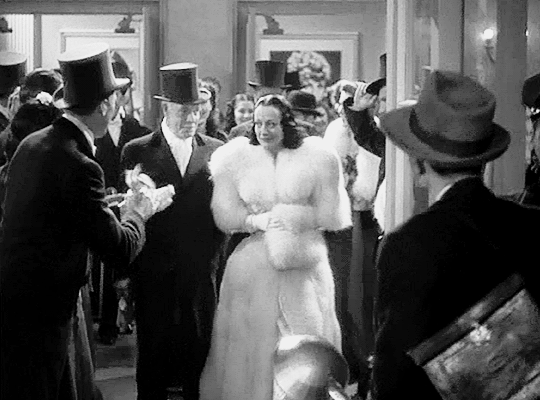
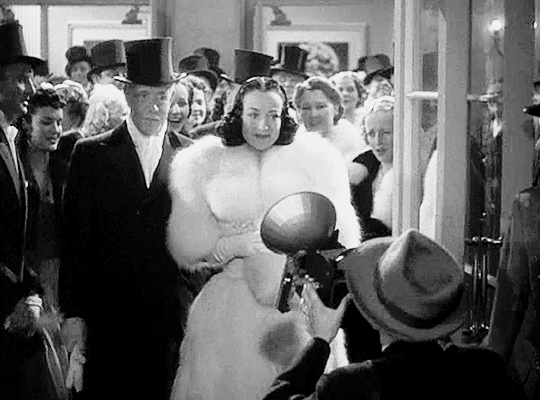
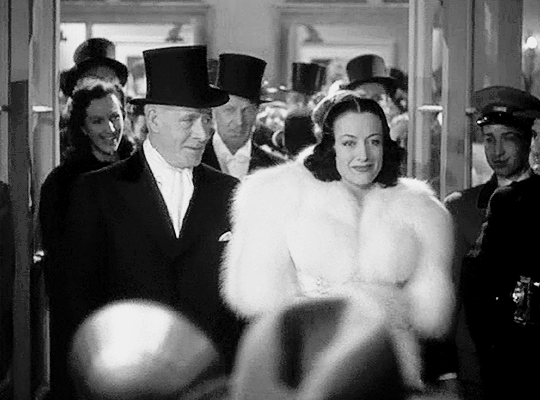
"One night after a performance of Victoria Regina, Ruth Gordon was with Helen Hayes in her dressing room. The two of them were going to a party and stood before the mirror inspecting themselves. Almost of a size, delicate and bright-eyed, they looked utterly charming but utterly unspectacular in their chaste dinner dresses. As they were leaving, Joan Crawford joined them--sleek and lovely in a white turban, dazzling diamond ear clips, and a white ermine coat that plunged in unbroken magnificence from her chin to the floor. Leading the way, Miss Crawford's blazing, ermined presence swept from the dressing room. Miss Hayes took a final look in the mirror, sighed, shrugged, and, beckoning Ruth Gordon to follow, murmured, 'Snow White and her two dwarfs.'" — Therese Lewis
#joan crawford#marciabrady#the ice follies of 1939#ice follies of 1939#reinhold schunzel#old hollywood#film#1930s#gifs#quote
104 notes
·
View notes
Photo

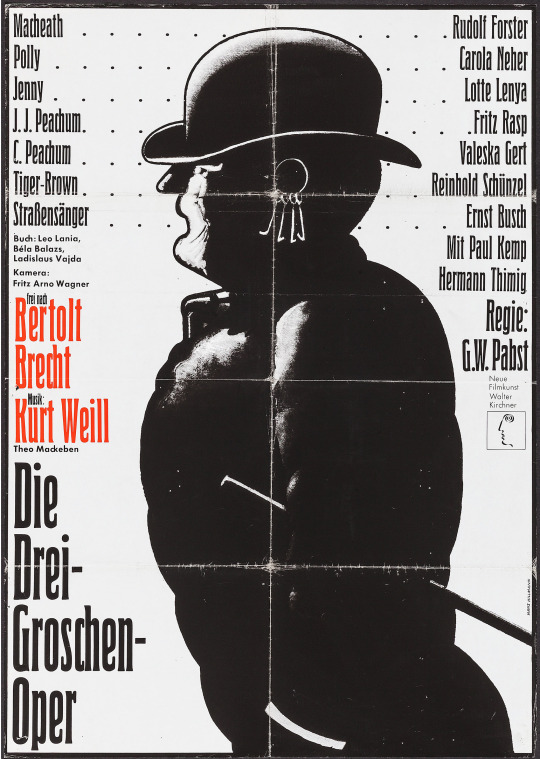
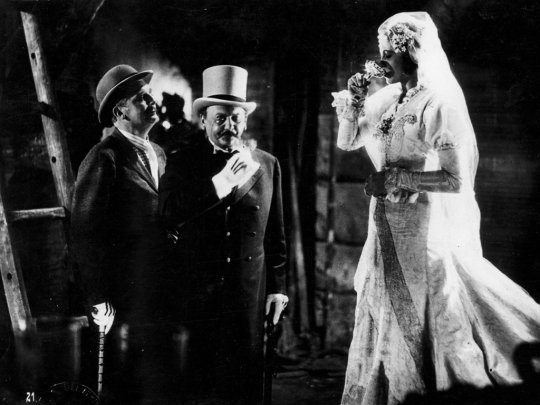
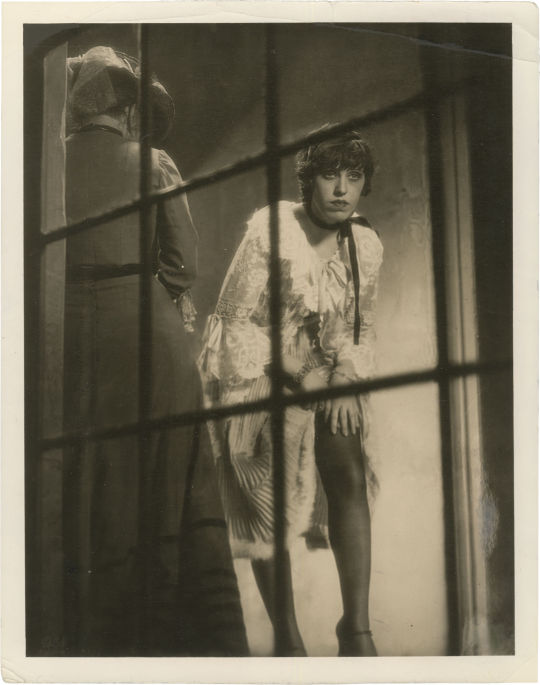
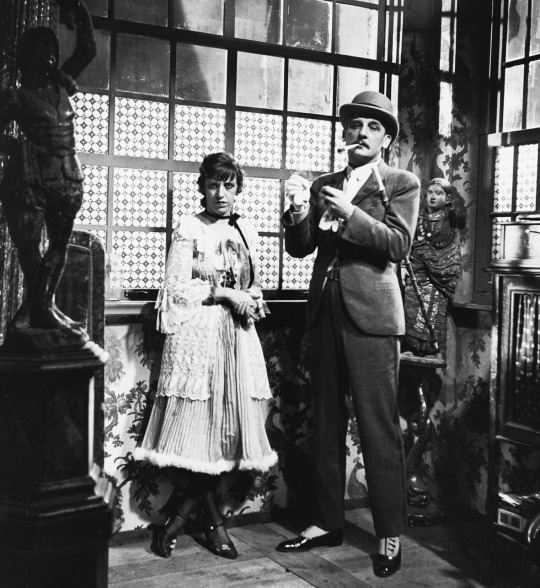
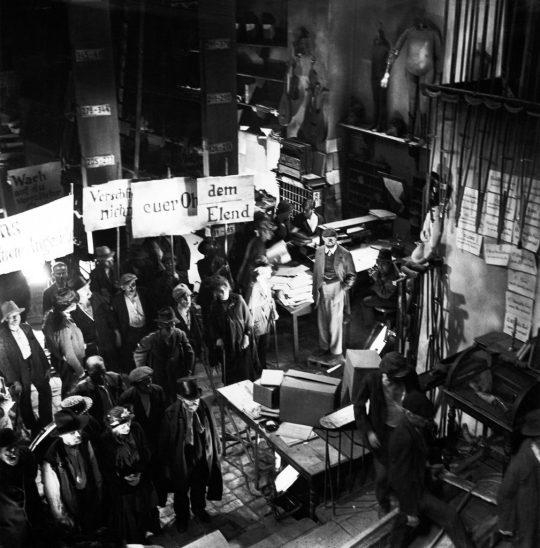
The 3 Penny Opera (Die 3 Groschen-Oper) (1931) G.W. Pabst
May 21st 2023
#the 3 penny opera#die 3 groschen-oper#1931#g. w. pabst#rudolf forster#carola neher#reinhold schunzel#fritz rasp#valeska gert#lotte lenya#ernst busch#vladimir sokoloff#the threepenny opera
8 notes
·
View notes
Text
#victor and victoria#viktor und viktoria#reinhold schunzel#musical comedy#german film#1930s#queer film#queer cinema#queer culture#german cinema#romantic comedy#movie art#art#drawing#movie history
1 note
·
View note
Text
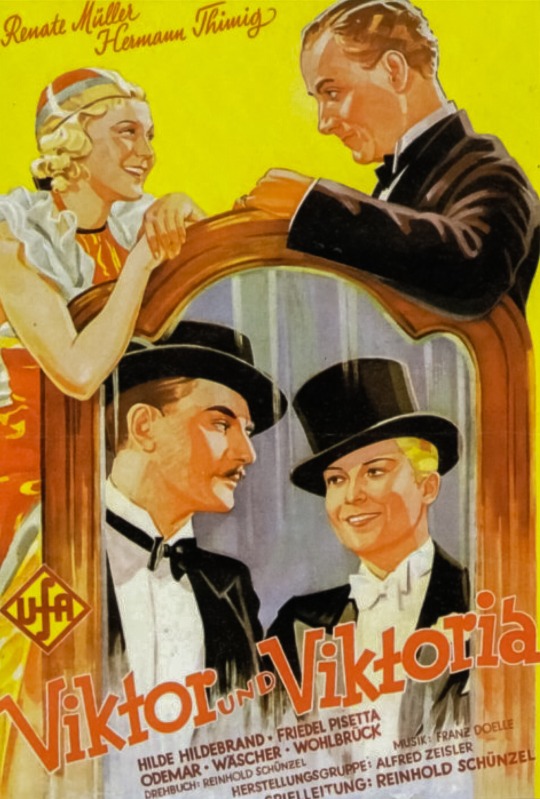
Viktor und Viktoria (1933) written and directed by Reinhold Schunzel.
24 notes
·
View notes
Text
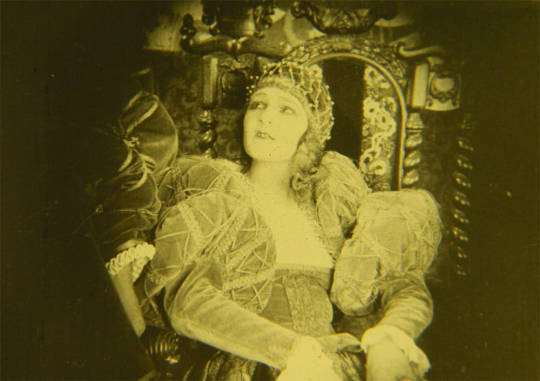
Anita Berber in a still image from the 1922 period drama Die Drei Marien und der Herr von Marana (The Three Marys and the Lord of Marana) directed by and starring Reinhold Schunzel. This film which also co-stars Hungarian star Lya de Putti and Belarusian actress Olga Belajeff was rediscovered in 2009 with Italian intertitles and restored.
4 notes
·
View notes
Text
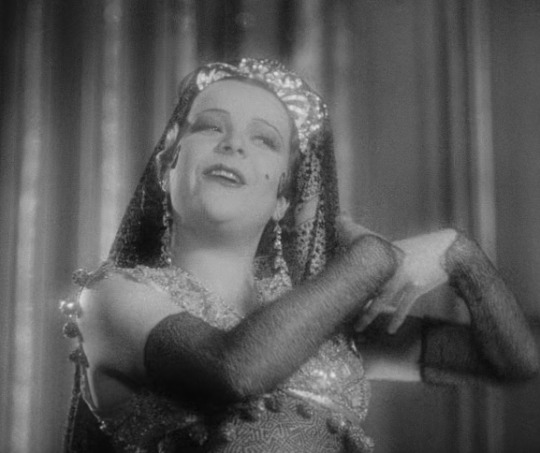

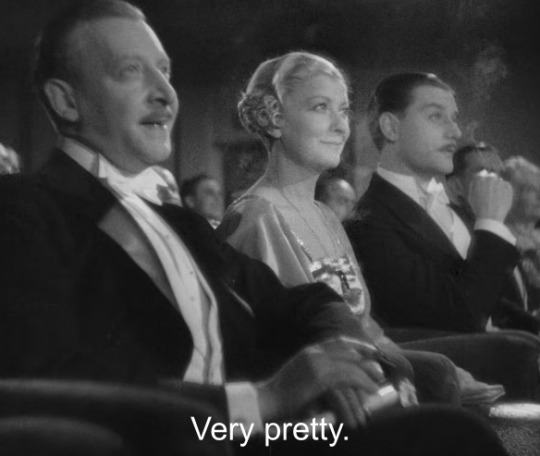
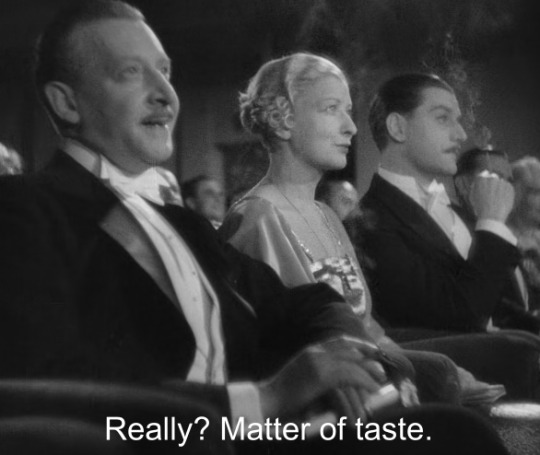

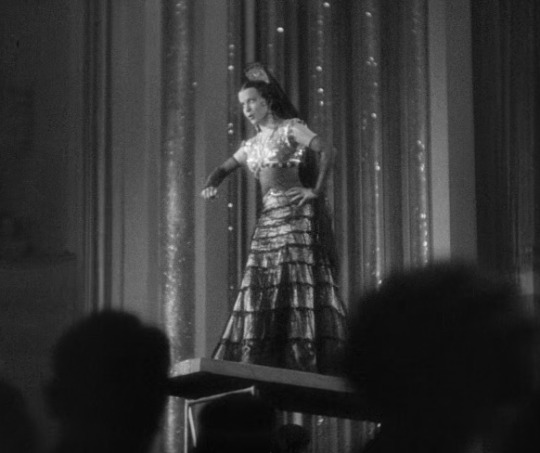


Viktor und Viktoria (1933) Reinhold Schunzel
5 notes
·
View notes
Text
Notorious, Alfred Hitchcock, 1946, US
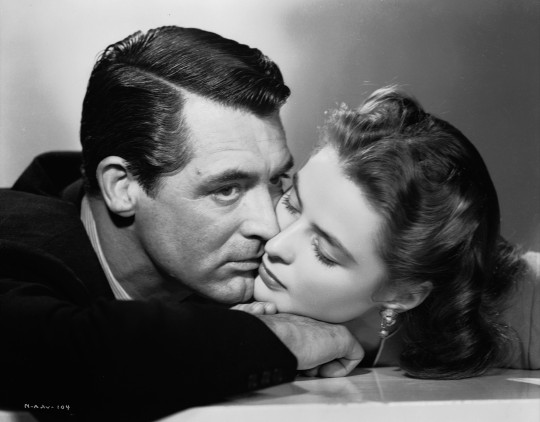
Starring Cary Grant, Ingrid Bergman, Claude Rains, Louis Calhern, Leopoldine Konstantin, Reinhold Schunzel, Moroni Olsen.
102 min. b/w.
One of Hitchcock's finest films of the '40s, using its espionage plot about Nazis hiding out in South America as a mere MacGuffin, in order to focus
on a perverse, cruel love affair between US agent Grant as Devlin
and alcoholic Bergman as Alicia, whom he blackmails into providing sexual favours for the German Rains as a means of getting information.
Suspense there is, but what really distinguishes the film is the way its smooth, polished surface illuminates a sickening tangle of self-sacrifice, exploitation, suspicion, and emotional dependence.
Grant as Devlin, in fact, is the least sympathetic character in the dark, ever-shifting relationships on view, while Rains, oppressed by a cigar-chewing, possessive mother and deceived by all around him, is treated with great generosity. Less war thriller than black romance, it in fact looks forward to the misanthropic portrait of manipulation in Vertigo.
There are several memorable scenes of the film such as the long kiss of the couple that with Hitchcock's ingenuity avoided the "code" was in force at the time..
0 notes
Photo
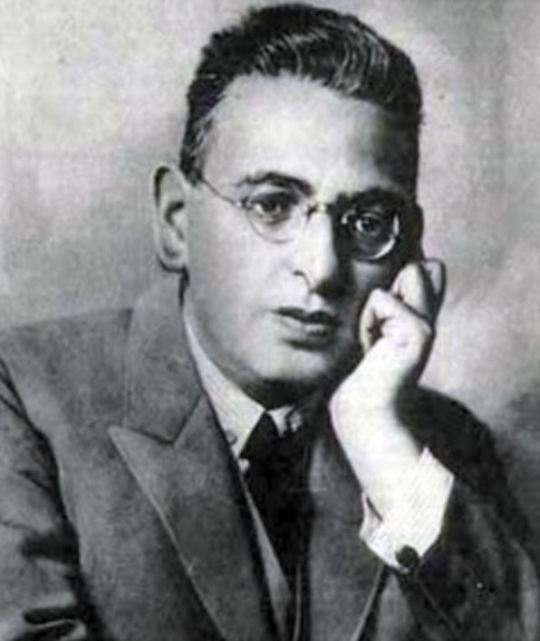

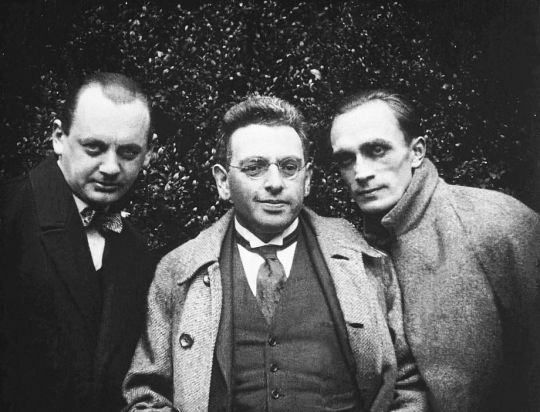
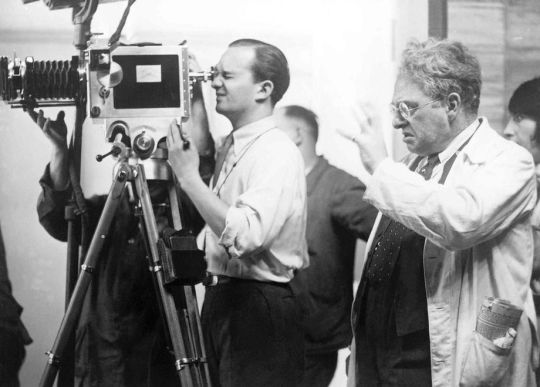
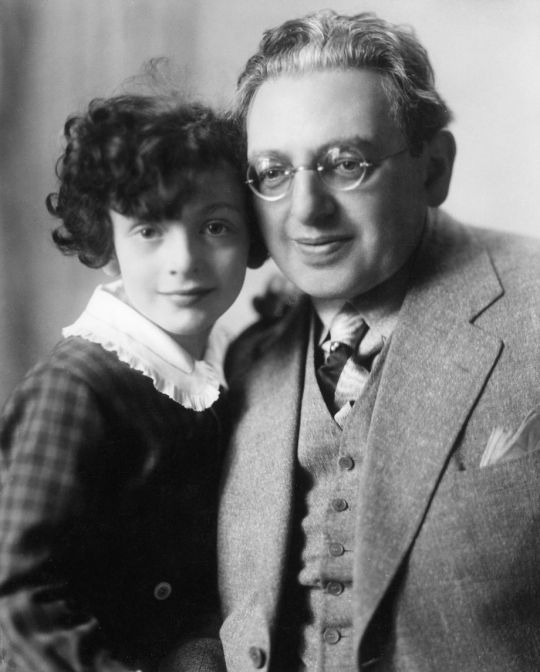
Richard Oswald (1880 - 1963) was an Austrian filmmaker who directed over a hundred films during his lifetime, and had almost as many writing and producing credits. He is best known today for his collaborations with actors Reinhold Schünzel, Anita Berber, and Conrad Veidt; as well as with therapist and sexologist Magnus Hirschfeld (leading to a number of socially conscience productions meant to enlighten the public on subjects such as sex, prostitution, and queer identities.) Of all his films, Anders als die Andern (Different from the Others) in 1919 is the most famous for it’s early advocacy of gay rights. His adaptations of Around the World in 80 Days and Peer Gynt (both released in 1919 as well) were also especially successful. Oswald was Jewish, and was forced to flee Germany when the Nazis rose to power, though he was eventually able to return after the end of WWII.
The 1st and 2nd images are early portraits of Oswald, the 3rd image is taken from the opening credits of Eerie Tales (1919) alongside Schünzel and Veidt, with Oswald in the middle, the 4th image is from behind the scenes of Different from the Others, and the 5th is of Oswald and his son.
17 notes
·
View notes
Text
In honour of Halloween, I've taken the password(s) off Eerie Tales (Unheimliche Geschichten, 1919) and its subtitles. Grab it if you haven't seen it yet; it's great fun. (The file I have is better quality than the TV recording that's out there on YouTube, BTW.)
As usual, use CTRL+F on your browser to locate the links on the masterpost. I can't add links here because Tumblr will hide this post from the Connie tag if I do that. For newbies: you'll be able to find the link to the masterpost on the top of this blog.
#i also can't add gifs to this post bc ppl will reblog the post just for the gif :P#anyway#eerie tales#conrad veidt#anita berber#reinhold schunzel#richard oswald#horror#silent film
2 notes
·
View notes
Photo
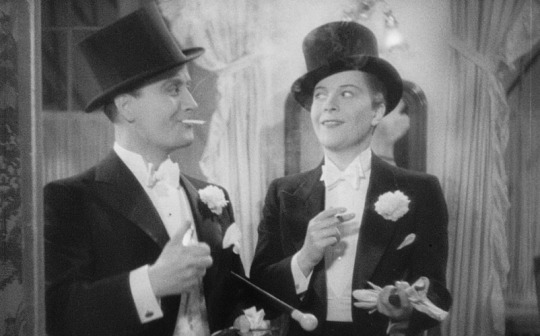
Seen in 2020:
Viktor and Viktoria (Reinhold Schunzel), 1933
#films#movies#stills#musicals#Viktor and Viktoria#Reinhold Schunzel#Renate Muller#Herman Thimig#Weimar Cinema#German#1930s#original#seen in 2020#virtual cinema
2 notes
·
View notes
Audio
Is it horror? Is it film noir? It's THE MAN IN HALF MOON STREET (1945, Murphy) starring Nils Asther and Helen Walker!
With a powerful score from Miklós Rózsa and a plot from Barré Lyndon, this certainly is A Film To Watch!
Context setting 00:00; Synopsis 18:31; Discussion 30:29; Ranking 43:21
#podcast#miklos rozsa#barre lyndon#the man in half moon street#ralph murphy#nils asther#helen walker#reinhold schunzel#paul cavanaugh#edmond breon#morton lowry#matthew boulton#brandon hurst#the man who could cheat death#picture of dorian gray#thriller#film noir#horror#classic horror#paramount pictures#classic film
2 notes
·
View notes
Photo


Friends and colleagues pay tribute to Connie upon his death. From Aufbau, a pro-Jewish magazine for European exiles, 1943.
My translations of the German articles (all except for the intro, which is just basic stuff about who he was) are under the cut. Bear with me, as these are clumsy and quick–if you have better phrasings to suggest, I’m all ears.
Eight friends say goodbye
***
Back then in Berlin
I first saw Conrad Veidt as a young actor towards the end of the First World War - before the end of the second one, he suddenly passed away, in the midst of the maturity of acting.
He immediately stood out with his own strong, singular head. You had faith in him: you felt sure that there was something in that head that stuck (stood out?). At that time the Deutsches Theater had established a special stage, “Das Junge Deutschland” (The Young Germany), to give the leading generation of poets and actors a place to be. Here, for the first time, Veidt appeared in a leading role. He stood next to Krauss, Wegener, Jannings, Thimig under Reinhardt’s direction in the engine room of a submarine in Göhring’s “naval battle” - an anti-war piece whose performance we had continued during the war. The day after the premiere, Conrad Veidt was no longer an unknown.
A few months later, I had the opportunity to work with him during long weeks of rehearsal. He would play the main, tragic role in, and I would direct, Werfel’s “Visit from Elysium”. In a fraction of a second he realised what the director wanted, gave it back, made it stronger. You could play him like a wonderful old violin.
Veidt’s career in the theater lasted only a few years. The art of cinema, which had matured and gained stature, reached out to the prominent actors. Veidt was one of the first to follow this call, which promised money and worldwide impact. But he avoided the mistakes that many made in Germany: he did not split himself between the stage and the screen. After a short period of experimentation, he gave himself to cinema completely.
More than twenty years of success proved that he’d done the right thing. After Berlin came Hollywood, then London.
Here I met him again, after his great success as Jew Suss, in 1934. He was very mature as a person and as an actor: amiable, cordial, and a bit boyish. He had a winning personality.
A few years later, Hollywood beckoned him back - and Hollywood consumes people quickly. I last saw him in “Casablanca.” It was, despite the unsympathetic character he had to portray, a well-rounded, shining, memorable performance. As a German “Aryan,” he had had to, for the most part of his final years, play unpleasant Nazis. He played him well. But his heart, one could always tell, beat only on the side of his movie opponents.
–Heinz Herald.
***
Fare well, Conny!
Conrad Veidt is no more. A message doubly cruel for its suddenness, and still unbelievable to me at the moment. A great actor and a wonderful human being has been taken from us forever.
Even for me, someone who knew Conny since his earliest beginnings and was privileged to be called his friend, it is difficult to decide what to admire in him more: his artistry or his humanity. As a young actor, when his first successes came, and later, when his name had gained international reputation, Conny would always remain the same, of course, modest and sincere, remaining true to his friends, but also to himself. And it was this staying truthful to himself that led him to the perhaps most difficult step in his life: renouncing forever the land of his birth, a step dictated by no external compulsion, but solely by an inner conviction; a step that more than anything else characterizes the humanity of Conrad Veidt, that humanity which was the source of his versatile, creative artistic power.
Conrad Veidt is no more; a great actor and a wonderful human being has been taken from us forever. “Farewell, Conny; you will live on in the memory of all of us who loved you and revered you.”
–Erich Pommer
***
Conny, the Knight
“Conny’s” death unnerves me. We were not close enough friends for his leaving to leave a gap in my life–but I feel that his terrible demise–he was only 50–is symbolic of the slow death we are all going through. So much has gone away with Conny–the Berlin of the Twenties, Reinhardt’s plays, the glorious cabaret, Valetti, Tucholski, Mehring, and Jenny Holl–Jannings's and Veidt’s wife “at the time”–“The Cabinet of Dr. Caligari” and Conny–more ascetic and deeply spiritual things than one can imagine.
I got to know Conny better when I was writing and filming a Pirandello film - “Henry IV.” out in Staaken, where the night-patrols(?) now wait for the RAF –Conny was not just the actor who played knights, he was a knight.
And then came Hitler, and Conny left. Without hesitation, without wavering, just like Marlene Dietrich. I saw Conny in London–he was one of a kind, and everyone who had gone to him (to ask for help) with their problems knew just how friendly and helpful he was. And then, to cap off a Saturday afternoon, he goes and dies of a heart attack at a golf course, by the wayside.
Just three days ago, I saw him in Casablanca: he plays a Nazi major, but he can’t play a Nazi major: Conny’s own nobility beats and betrays this tyrannical animal. The newspaper says that Conny had a weak heart. No–he had a strong and good heart–but perhaps, in these times, such a heart is less fit for life than a “weak” heart.
–Hans Jacob.
***
A loss for immigration
In Conrad Veidt, the Hollywood film and the European actors' immigrant (colony) have lost one of their best representatives. A lovable and amiable man - an actor of intensity and dedication - a helpful colleague, a friend to all who needed his friendship - his early end has dealt all of us a severe blow.
In my professional and personal dealings with Conny (as producer of his first American films, “The Man Who Laughs” and “A Man’s Past”) I learned to appreciate and love him as a kind person and as an artist of high standards.
The pain of his loss is commingled with the warmth of sympathy that everyone who knew Veidt now feels for his wife and companion. In those hundreds of film roles he imbued with form, character and colour, the memory of this magnificent human being will continue to live on.
-Paul Kohner.
#conrad veidt#aufbau#connie's friends and family#tributes#in memoriam#articles#lilian harvey#paul kohner#robert arden#reinhold schunzel#hans kafka#erich pommer#hans jacob#reinhold's bit though ;_____;#connie's death#1940s#1943#second hollywood era#connie's humanitarian efforts
32 notes
·
View notes
Photo





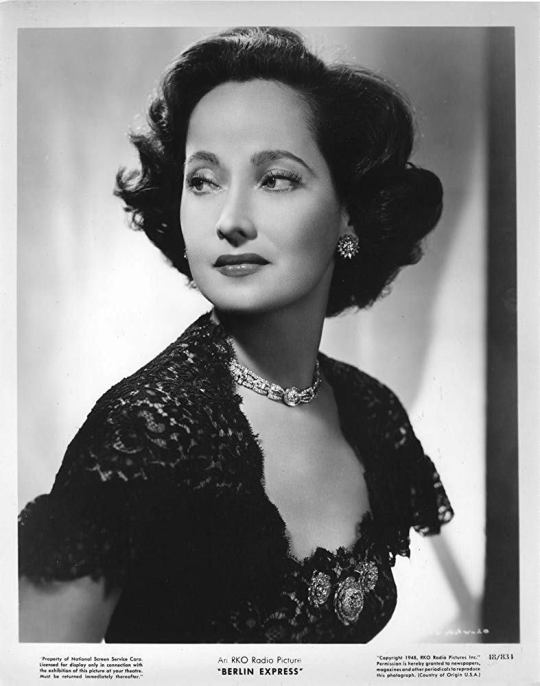
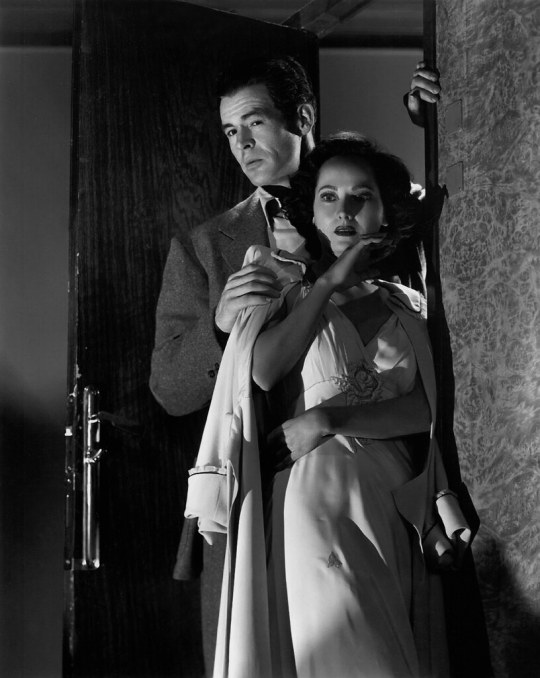


Berlin Express (1948) Jacques Tourneur
March 26th 2022
#berlin express#1948#jacques tourneur#robert ryan#merle oberon#paul lukas#roman toporow#charles korvin#robert coote#reinhold schunzel#charles mcgraw#peter von zerneck#fritz kortner#paul stewart
18 notes
·
View notes
Photo

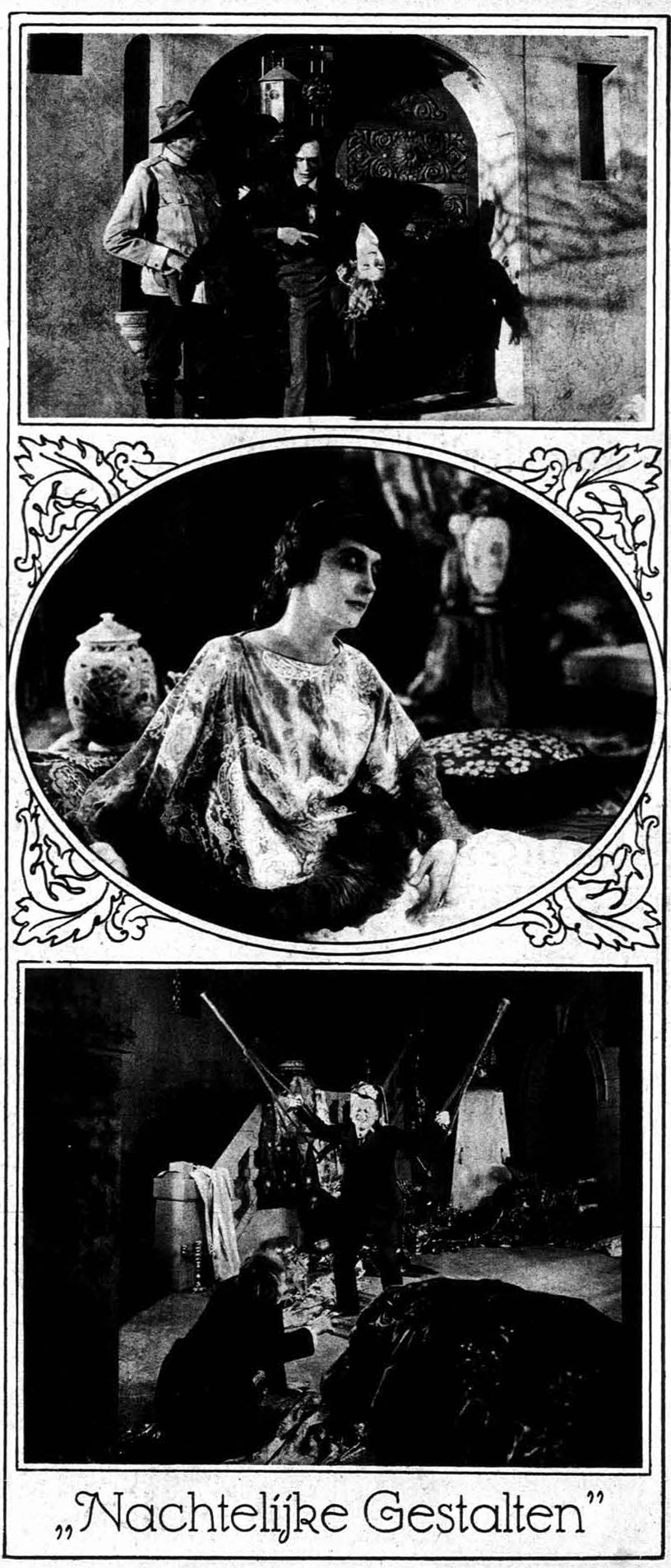
Photos from the (presumably) lost 1920 Richard Oswald horror film, Nachtgestalten (Creatures of the Night). The cast included Paul Wegener, Reinhold Schünzel, Erna Morena, Anita Berber and Conrad Veidt.
#conrad veidt#erna morena#anita berber#reinhold schunzel#paul wegener#nachtgestalten#SOMEONE FIND THIS#aaaaaaaaaaah#note how connie's just casually carrying anita under one arm#just like that#no problem#even when he was at his skinniest#he's LITERALLY like those panthers that drag gazelles twice their size up trees jfc#and erna's doing her fantastic languid mysterious thing which is great#and reinhold's absolutely batshit insane as per#they were like a repertory company for oswald weren't they#AAAAAAAAAAAAH SOMEONE SERIOUSLY DIG THIS UP#no i'm sorry i'm still staring at that shot where he's carrying anita#like how#HOW DID HE DO THAT
3 notes
·
View notes
Photo

Hilde Hildebrand in Die englische Heirat (1934)
Direction: Reinhold Schünzel
Costumes: Not credited
4 notes
·
View notes
Text
12/10
Reading
Continued with The Name of the Game Is Death.
Writing
Started a new commission. But it takes the form of a short story, and I’m always slower at those, so I only got 1126 words written.
Movies
1. Act of Violence (Van Heflin, Robert Ryan. d. Fred Zinnemann. 1948): An ex-POW with a dark secret is stalked by a former comrade. A strong beginning, but it loses the thread as it goes. [Complete]
2. Ziegfeld Girl (James Stewart, Judy Garland. d. Robert Z. Leonard & Busby Berkeley. 1941): The tribulations of three Ziegfeld Follies girls. A bright opening isn't enough to make me want to watch 123 more minutes of it. [12:00]
3. Another Dawn (Kay Francis, Errol Flynn. d. William Dieterle. 1937): Something to do with something. Twelve minutes in, and I have no idea who or what the movie is about. [12:00]
4. The Desert Song (Kathryn Grayson. d. Bruce Humberstone. 1953): A creaky old operetta, transposing Robin Hood to the Algerian desert. To modern eyes it is hysterically funny (which is why I persevered as long as I did), but I couldn't take 110 minutes of it. At least it opens with an energetic fight that sets up the movie’s situation.[23:00]
5. Rich Man, Poor Girl (Robert Young. d. Reinhold Schunzel. 1937.): A millionaire courts a girl from a poor family. Opens with piecemeal introductions to a madcap family, but I'm given no reason to care about them. [13:00]
1 note
·
View note